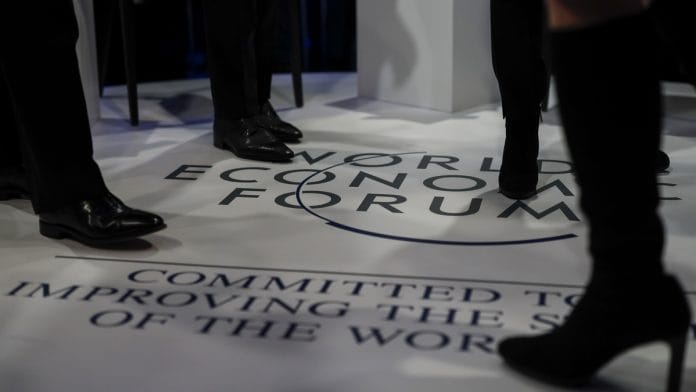New Delhi: The World Economic Forum’s ‘Global Risks Report 2020’ released Wednesday notes that for the first time in the report’s 10-year-history all of the top five issues that are likely to impact the world this year are environmental.
The “top five global risks in terms of likelihood” are — extreme weather conditions, climate action failure, natural disasters, biodiversity loss and human-made natural disasters. In the previous decade, economic and financial crises were some of the most dangerous.
The report states that global temperatures are set to rise by 3°C toward the end of this century. This is “twice what climate experts have warned is the limit to avoid the most severe economic, social and environmental consequences”.
Borge Brende, president of the WEF, said in a statement Wednesday: “The political landscape is polarised, sea levels are rising and climate fires are burning. This is the year when world leaders must work with all sectors of society to repair and reinvigorate our systems of cooperation, not just for short-term benefits but for tackling our deep-rooted risks.”
For this year’s report, more than 750 experts and decision-makers were asked to rank their biggest concerns in terms of likelihood and impact. And 78 per cent of the respondents (585 people) said “economic confrontations” and “domestic political polarisation” would rise in 2020.
Also read: Only Piyush Goyal and one MoS to be face of Modi govt at Davos 2020
Political instability
The report foresees a year of increased domestic and international political instability and economic slowdown. Stating that geopolitical turbulence is propelling the world towards an unsettled era of great power rivalries, it asks leaders — both in businesses and governments — to work together in tackling “shared risks”.
Calling turbulence in geopolitical changes as the “new normal”, the WEF report explains how powerful economic, demographic and technological forces are shaping a new balance of power. It explains how states are now adopting a more nationalist stance while pursuing their individual agendas.
The report also notes that states are re-evaluating their approach to geopolitics and investing more in exerting influence around the world while digital technology is changing what it means to exert global power.
A shift in mindset is also taking place among stakeholders, it notes — from multilateral to unilateral and from cooperative to being competitive.
Year of economic slowdown
The report also forecasts a year of economic slowdown. The International Monetary Fund had expected growth to be at 3 per cent in 2019 — the lowest since the economic crisis of 2008-09.
The report goes on to assert that trade has turned into an “instrument for rivalry” and could be used to boost growth and enhance global coordination. The US-China trade stand-off has not only harmed economies of both countries but the global economic outlook as well.
India’s GDP growth rate also fell to 4.5 per cent in the second quarter of 2019-20, the lowest in more than six years.
The report further asserts that the decline of economic integration will remove what is regarded as a check against outright conflict.
Also read: World economy limps into 2020 after battering from trade tension & manufacturing recession






